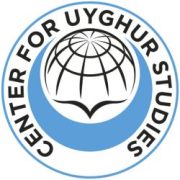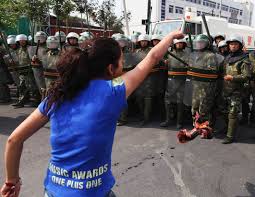- Executive Director Abdulhakim Idris delivered this speech on July 5, 2023 during a webinar organized by Center for Southeast Asian Studies. Watch the webinar here.
“Thank you for this opportunity to speak at the conference commemorating the Urumchi massacre on July 5, 2009. Since the conference announcement has already provided a detailed description of the massacre, I will focus on two main points.
The July 5th massacre reveals the bloody face of Chinese Communist policies toward Uyghurs. This dictatorial regime unleashed brutal violence against Uyghurs who stood up for their rights and opposed the persecution of Uyghurs in Guandong. The Chinese regime used both its military and police force. As if this wasn’t enough, the regime also openly provoked the Han Chinese to join the bloodshed.
This horrific event demonstrates the Chinese Communist regime’s disdain for human rights, universal values, and democracy. What’s more, the Beijing regime used this massacre to further its dictatorial agenda.
In this first maneuver, China targeted Uyghur NGOs in the diaspora, which were the voices of Uyghurs. For a long time now, the Chinese regime has been venting its anger on people like me who speak about the reality of what’s happening to Uyghurs by imprisoning and torturing our relatives and friends.
Secondly, the regime sought to validate its narrative of combating “the three evils” of terrorism, radicalism, and separatism through this massacre. Adopting the ‘war on terror’ language post the September 11 attacks, they justified the Urumchi massacre as a fight against terrorism, separatism, and extremism—a narrative China continue to sell to deny the Uyghur Genocide.
The Chinese Communist regime suppresses information. In fact, the whole regime depends on it. When they couldn’t legitimize their accusations of separatism, religious extremism, and terrorism against the Muslim Uyghurs, they started feeding disinformation about the massacre. Websites like Wikipedia report that hundreds lost their lives in Urumchi. But the reality is far worse: Thousands were killed during and in the aftermath of the unrest and in the crackdown that followed.
The events in Urumchi served as a tool for the Chinese Communist Regime, which is determined to exterminate Uyghur and Kazakh Muslims. They arrested thousands without any evidence, many of whom have disappeared. Especially young people, not only in Urumchi but in other cities, were singled out, becoming victims of the regime’s police.
Lastly, the Communist regime used the July 5 massacre to further escalate tensions between the Han Chinese and the Uyghurs. The Chinese regime manipulated the Han Chinese, feeding them racist, nationalistic, and atheistic ideologies, leading them to view Uyghur Muslims as ‘uneducated, backward, and dangerous.
Another effect of the July 5 massacre is the elimination of Uyghur language education across East Turkistan. The escalation of repressive security measures to oppress Muslim Uyghurs, and the transformation of my homeland into a real open prison through high-tech surveillance systems, rapidly escalated after the massacre. Urumchi, for instance, witnessed a drastic rise in security personnel from 20,000 to 70,000 shortly after the massacre.
East Turkistan’s transition into an open-air prison truly began after July 5. Following the protests, 40,000 state-of-the-art security cameras were installed. These numbers have since grown even more. Today, every square meter of my homeland is under the Chinese government’s eye. The lives of Muslim Uyghurs have since been completely controlled, with every step monitored by AI technology.
After the protests, barriers were installed in Urumchi to segregate Han Chinese and Uyghur neighborhoods, and public travel was severely restricted. Street security checkpoints were established, and a powerful surveillance operation was launched against conservative individuals, particularly those coming to Urumchi from rural areas. At the same time, public displays of Uyghurs’ traditional and religious beliefs in schools and official spaces became severely restricted.
Efforts to make the region Chinese regime resulted in further interference in the religious lives of local Muslims, with increasing bans on Islamic practices. Under the guise of ‘combating global terrorism,’ the Chinese regime also blocked communication channels to prevent the outside world from witnessing the truth. Access to social media platforms like Facebook and Twitter was prohibited, and international phone calls were severely restricted. Not only news sites but also all websites discussing Uyghur culture, literature, and social life were blocked.
Xi Jinping, who assumed power in 2012, escalated these oppressive measures, believing that the already severe practices were not strong enough. The concentration camps, initially introduced in 2014, were expanded from 2017 onwards. Millions of Uyghurs were sent to these concentration camps. In these camps, Uyghurs were subjected to inhumane treatment with the aim of erasing their religious, national, and cultural identities.
Exposed to the Communist doctrine and victims of torture, rape, and forced labor, the Uyghurs endured unspeakable atrocities. Uyghurs detained in these camps were often subjected to show trials and handed long prison sentences on fabricated charges. A father was imprisoned for teaching his children about Islam and educating them about Uyghur culture. Independent international organizations have documented cases where Uyghurs were imprisoned for simply asking if a product was halal.
Accounts of gang rapes in these concentration camps are horrifying. Indeed, the UN Human Rights Council has recognized these persecutions against Uyghurs as crimes against humanity.
In its pursuit to erase the Uyghur identity, the Chinese Communist regime has not only ordered mass arrests and deportations to concentration camps but also systematically demolished Uyghurs’ historical and cultural heritage. As a state, China burned Qurans, destroyed around 16,000 mosques, and completely razed 8,000 mosques while also desecrating cemeteries.
Even today, the Internet is filled with videos of Han Chinese people dancing and drinking alcohol in mosques, and Uyghurs are forced to join them. This is the true face of China’s so-called fight against extremism. If you object to people drinking alcohol and dancing in a mosque, you belong in a Chinese torture chamber. If you don’t want to take part in it, look away and say, ‘May Allah forgive them’ – guess where you will go? Yes—a Chinese torture chamber. For years.
Tragically, society is being exterminated in full view of the world, with only a weak voice of protest against this ongoing genocide.
The second point I wish to address is the position of Muslim countries regarding the July Fifth massacre and its aftermath.
Let me ask this question: “If the Muslim world had reacted appropriately to the July Fifth massacre in East Turkistan, would the Chinese Communist regime have been able to conceal the Uyghur Genocide so easily?”
Unfortunately, we all know the answer. It is with much regret that I say this: The Islamic world has failed to give a robust response, both following the July Fifth massacre and in the face of the Uyghur Genocide, which is now undeniable.
An examination of news archives reveals that the only state-level comment on July 5 came from then-Turkish Prime Minister Recep Tayyip Erdogan, who called the massacre “a genocide.” Since then, there has been no statement from the Organization of Islamic Cooperation or its member states.
Today, as was the case in 2009, Islamic countries have neglected Uyghur Muslims. However, it is worth noting that civil society organizations in Muslim countries, such as those organizing today’s gatherings, have been taking measures to protect Uyghur Muslims. The Uyghur community places great importance on these efforts.
Meanwhile, it is concerning to see Muslim states taking positions against Uyghur Muslims on the international stage. However, very few governments are providing support.
Our report published in March this year reveals that Muslim countries are both economically and diplomatically close to China’s sphere of influence and are incapable of advocating for Uyghur human rights. This dependence was clearly shown in the response to the Urumchi Massacre. Following the massacre, a delegation representing the OIC visited East Turkistan, but the visit was guided by the Chinese Islamic Association, and it ended up endorsing China’s narrative.
The Organization of Islamic Cooperation, the OIC, has shown more interest in liaising with representatives of the Chinese government than meeting with representatives of Uyghur Muslims or learning about the Uyghur Genocide in East Turkistan. It is particularly disheartening for us Uyghurs to witness the Chinese Foreign Minister being invited to and given a platform at the OIC meeting held in Pakistan in recent years.
The abandonment of the Uyghur Genocide by member countries was not limited to internal statements. In July 2019, 22 UN member states published a letter to highlight the atrocities in East Turkistan. The Chinese Communist regime countered this move, primarily by Western countries, by rallying Muslim states. 37 countries, including Muslim states, issued counter-letters to praise China’s alleged successes in human rights concerning the Uyghurs.
During the examination of the report by the UN High Commissioner on Human Rights regarding China’s crimes against humanity and Uyghurs, the report was voted down, preventing further investigation of the report’s findings. Muslim countries voting against the report was a big disappointment for Uyghurs.
China’s disinformation system also plays a significant role, and Islamic countries’ ties to China also extend to the information realm. After the Urumchi massacre in 2009, the media in Islamic countries either did not cover it or adopted Beijing’s narrative. Important figures such as journalists, diplomats, and academics, when invited to our homeland, don’t voice Uyghur concerns. They follow the narrative set by China.
In conclusion, we are experiencing a dark period in human rights, democracy, and universal values. China’s desire to lead the world in all domains poses a considerable threat to both Islamic and Western nations.
The July 5 massacre provides a glimpse into the nature of the Chinese Communist system.
I wanted to share our experience with you so that you can learn a lesson from the genocide that Uyghurs, my people, are facing. If Beijing realizes all its goals in East Turkistan, other countries will be next in line.
Let us remember the victims of the July 5 massacre and the countless other Uyghur Muslims who continue to endure unspeakable hardships.
It’s time for us to rise above and unite against the ongoing persecution of Uyghur Muslims. Let’s ensure that the horrific legacy of July 5 is remembered, and that justice is served.
Uyghurs deserve nothing less.
Thank you.”
Copyright Center for Uyghur Studies - All Rights Reserved

